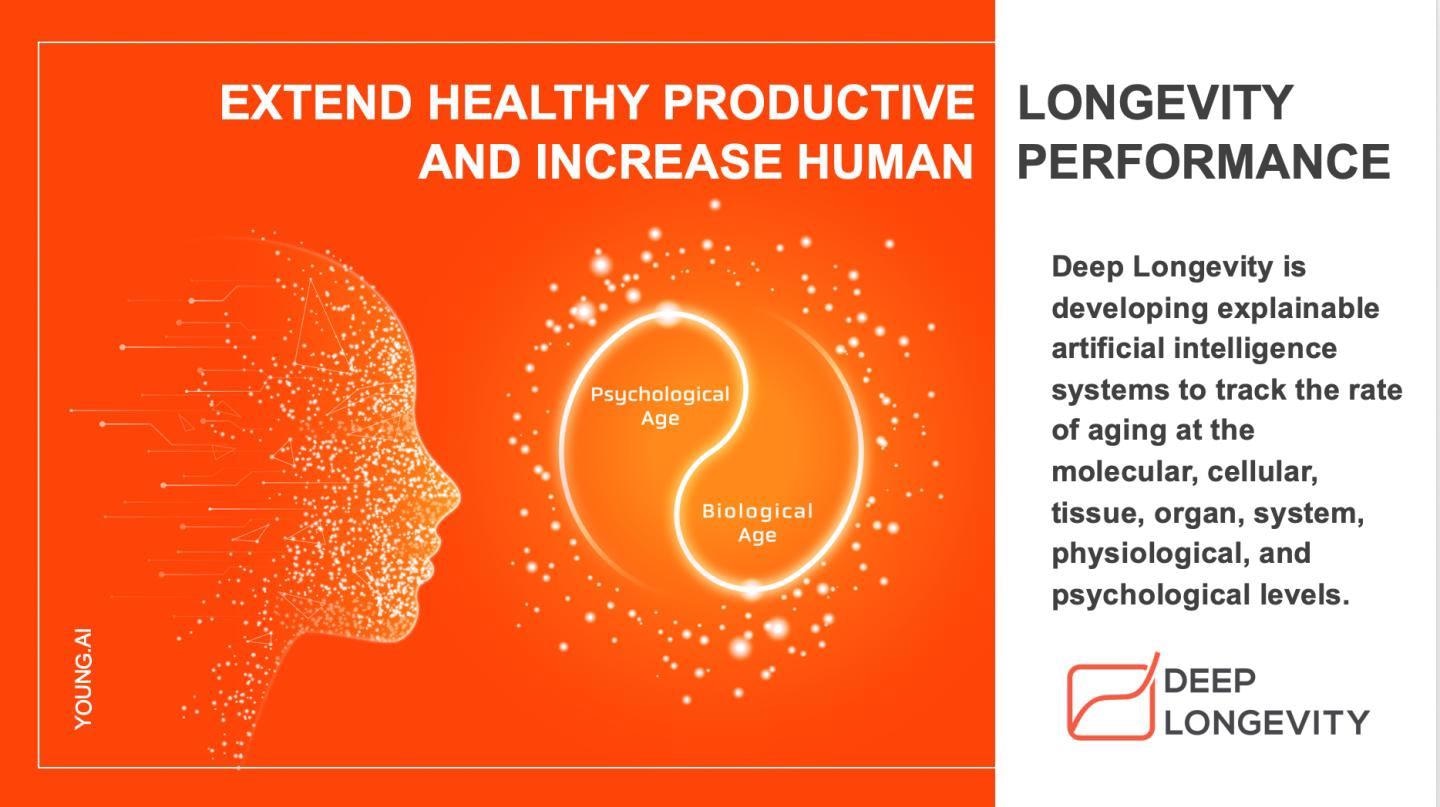Dec 17 2020
Deep Longevity, a firm that designs artificial intelligence (AI) to monitor human aging and prolong productive longevity, has recently launched the first AI-driven psychological aging clocks to investigate and understand the psychosocial factors in relation to aging.
 Scientists at Deep Longevity published the first set of psychomarkers of aging developed using deep learning to track the changes in human psychology and assess the effectiveness of interventions, life events, and external events. The new PsychoAge and SubjAge aging clocks were linked to mortality risk. Image Credit: Mary Mitina.
Scientists at Deep Longevity published the first set of psychomarkers of aging developed using deep learning to track the changes in human psychology and assess the effectiveness of interventions, life events, and external events. The new PsychoAge and SubjAge aging clocks were linked to mortality risk. Image Credit: Mary Mitina.
Scientists at Deep Longevity, along with Dr. Peter Diamandis, the visionary physician, entrepreneur, engineer, and the founder of the XPRIZE Foundation and Singularity University, have published their study titled “PsychoAge and SubjAge: Development of Deep Markers of Psychological and Subjective Age Using Artificial Intelligence” in the Aging journal.
Similar to other species that follow the traditional evolutionary example, human beings are born and they grow, reproduce, look after their young ones and then slowly wane and die.
But human beings are also known to be conscious intelligent species and modify their priorities, behaviors, attitudes and beliefs during their life. Previous studies on Socioemotional Selectivity Theory (SST) have shown that the horizons of human life can be exploited and can, thus, impact their behavior.
To gain a deeper understanding of the traits that influence the psychological age, the perceived age and the connection between the mind and body in relation to aging, investigators at Deep Longevity set out to use their skills toward the advancement of deep biomarkers of aging to human psychology.
Aging biomarkers, which can precisely measure the process of human aging by numerous types of biological data, often called the 'aging clocks,' are among the most significant recent developments in the area of longevity research.
For instance, in November 2020, the team from Deep Longevity published a similar aging clock built on DNA methylation. This clock demonstrated excellent performance when compared to all other analogous solutions.
In spite of major developments in aging clock technology, the psychological feature of aging has been largely underexplored. But the latest study on deep psychomarkers of aging is anticipated to significantly expedite the development in the psychology of aging.
The objective of the newly published study is to bridge this gap by showing two AI-based age predictors—that is, SubjAge (which explains the personal perception of the aging rate) and PsychoAge (which estimates the chronological age).
Such models were trained on an array of more than 10,000 questionnaires finished by individuals aged between 25 and 75 years. This was done as part of the “Midlife in the United States (MIDUS)” study of the MacArthur Foundation.
Presented in the publication, these models were reworked into 15-question long surveys that are now available at Young.AI to allow individuals to find out their subjective and psychological age estimates.
The authors of the research work validated the SubjAge on huge independent datasets to identify that higher SubjAge is highly predictive of all-cause mortality. To be more precise, individuals, whose SubjAge is five years more than the chronological age reported by them, are twice as likely to die as an individual with normal perception of age.
The researchers also demonstrated how SubjAge can be therapeutically exploited to make patients feel younger and thereby decrease their risk of mortality. For instance, developing openness to novel experiences may decrease the prediction of SubjAge by as much as seven years.
Raising the bar high, being productive and not deterring from hard-to-reach objectives will reduce a person’s psychological aging clock by another four years.
For the first time, AI can predict human psychological and subjective age and help identify the possible interventions that can be applied in order to help people feel and behave younger.
Alex Zhavoronkov, PhD, Study Co-Author and Founder, Deep Longevity
Zhavoronkov, who is also the CLO of Deep Longevity, continued, “One’s mindset may determine the decisions that ultimately affect their overall health. By identifying the psychosocial variables that underpin particular mindsets and behaviors, deep psychological clocks can serve as a powerful tool in promoting personal improvement, mental health, wellness, and a wide range of other health and therapeutic applications.”
In follow-up research works on psychological aging, Deep Longevity has planned to study the variations in aging perception between males and females, analyze psychosocial markers linked to mental health, and create a combined model of mental-physical health crosstalk.
Journal Reference
Zhavoronkov, A., et al. (2020) PsychoAge and SubjAge: development of deep markers of psychological and subjective age using artificial intelligence. Aging. doi.org/10.18632/aging.202344.